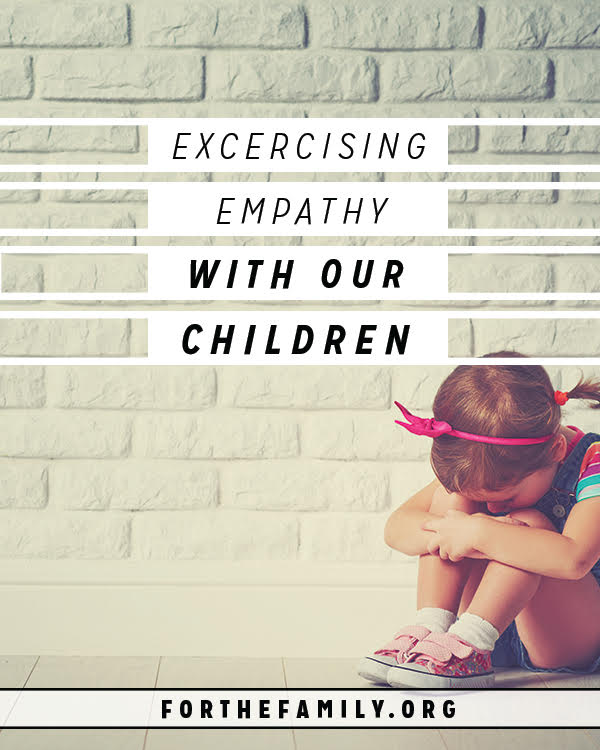Establishing Empathy In A Bullying World
 “Well…you may not be very smart, but at least you’re pretty.”
“Well…you may not be very smart, but at least you’re pretty.”
My daughter caught the full meaning behind the backhanded comment from her classmate – who shared it in front of everyone.
Even in its most passive forms, bullying rips at the heart of the strongest among us.
In an age where real human connection is often replaced by technology, we find ourselves dangerously close to losing our ability to empathize with our fellow human beings.
In its place, our centers for sympathy and recognition of the plight of others are giving way to what Ezekiel described as hearts of stone.
My daughter could have easily taken her revenge that evening on social media – giving back as good as she got. But instead, we dried her tears and talked through what could have compelled this person to want to hurt someone else publicly.
As we stepped back and chose to see this girl like a real person, not a villain in a movie, my daughter grew in her compassionate curiosity for her. We didn’t dismiss the hurt she’d caused and discussed healthy boundaries for those who might be toxic. But we did acknowledge that there must have been a wound of great proportion to have caused her to lash out that way. In the same way, we did not want her to reduce our daughter to a shallow caricature, we began to pray for greater insight into how to see this teenager as the Lord saw her.
Establishing empathy in a bullying world requires keeping our hearts tender to the pain of others and seeing someone else as an image-bearer of God.
So how do we teach that to our children?
As with so many matters of the heart, the Lord asks us to first MODEL the behavior.
Do we berate a server who doesn’t get our order “just right” because we have become accustomed to demanding perfection, or do our children see us being understanding about someone else’s imperfections? It takes about five seconds to stop and express, “I can only imagine what their day has been like before we got here. Serving in a restaurant is hard work.”
EXPOSE them to situations that draw them towards compassion.
Whether it’s working in a homeless shelter, visiting the elderly, or educating our children on such topics as poverty, racism, and disabilities – unveiling the conditions of those who are often marginalized reminds our children that there is a world outside their own. It emphasizes that every person God created deserves our respect and should be treated with dignity.
TALK and READ.
Scripture is very clear on how we are to treat each other and yet, it is a struggle even in Christian circles.
“’Love your neighbor as yourself.’ There is no commandment greater than these.” Mark 12:31 (NIV)
If there is no greater commandment, then loving our neighbor should take priority in the discipleship of our children.
PRACTICE the art of empathy together.
Our sinful nature is going to resist moving into someone else’s pain because it can cost us. It may dip into our time, our comfort and sometimes our finances, but the Lord calls us to share in one another’s sufferings.
“Carry each other’s burdens, and in this way, you will fulfill the law of Christ.” Galatians 6:2 (NIV)
We may not be able to protect our children from every bully, but we can develop men and women who will stand apart from the rest is how they respond and how they emulate Jesus’ capacity to see beyond the surface and directly into the heart.
Begging for a heart of flesh and eyes to see,
Denise C. McDowell






